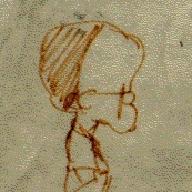- Blog/
Behind Deep Blue: Building the Computer that Defeated the World Chess Champion
I’ve never been a particularly good chess player — when I played on my high school chess team, my rating peaked at just above 1700, which is, well, decent. But ever since I played and lost to my first chess computer, I’ve aspired to writing a great chess program.
I never got around to it, only writing a series of Othello programs on various platforms, but the dream is still there. So I’m quite taken with Feng-Hsiung Hsu’s twelve-year quest to build a chess computer capable of beating the world chess champion.
There are really two major contests in this autobiographical account — the well-publicized final match between Deep Blue and world champion chess grandmaster Garry Kasparov, and the early political tension between the original Deep Thought team at Carnegie-Mellon University and the more established computer chess group led by Hans Berliner at the same institution.
Hsu’s irritation with these two major rivals comes through clearly, but he does attempt to at least sound understanding of their respective positions. The emotional level of disagreement and surprisingly petty behavior (during and after the match, Kasparov insinuated that the Deep Blue team cheated) highlight the fact that this was not just a game to Kasparov and not just an academic exercise to the CMU researchers. All the participants had the pride and work of a lifetime at stake, no less than that of athletes seeking a championship ring or Olympic medal.
Chess and technology enthusiasts should find the level of computer hardware and chess detail interesting, although others may find it tedious. Hsu fails to provide any substantial discussion of other computer chess research, which could lead the reader into thinking all the interesting developments occurred during Deep Thought/Deep Blue’s development, when in fact, computer chess has been a rich topic for decades. For example, one surprising omission — International Master David Levy defeated Deep Thought in an early game, but Hsu doesn’t note that Levy is a well-known computer chess authority and would know how to exploit typical weaknesses of chess programs as well as anyone.
Considering he’s not a native English speaker, Hsu’s writing is passable, and his vocabulary is impressive, although the style is somewhat stilted. There is at least one misspelling/typo (the Sports Illustrated “swim suite” edition), but the most distracting aspect of the writing is structural — Hsu recounts some events out of sequence, referring to them back and forth, so I felt a little bit like the time warping traveller in Slaughterhouse Five. For example, Hsu recounts a 1995 international computer chess tournament in Hong Kong before discussing a 1994 tournament in the next chapter.
Compounding this confusion is the succession of names for the various incarnations of the hardware — Deep Thought, Deep Thought II, Deep Blue, Deep Blue Prototype, Deep Blue Jr. It’s hard to remember the differences between them (it’s still not clear to me how Deep Blue Jr. is different from Deep Blue, aside from being “scaled down”), and I had to flip back the pages a few times to keep track of which version of the hardware was playing at what tournament and when against whom.
The naming issue does provide the most humorous anecdote in this tale — when the project was adopted by IBM, corporate insisted on changing the name from Deep Thought, largely because of the trademark issue (Deep Thought was named after the unhelpful computer in Douglas Adam’s Hitchhiker’s Guide to the Galaxy), but also because a surprising number of people, including a nun, kept referring to the computer as Deep Throat.
In an attempt to explain his ambition and tendency to bump heads, Hsu intersperses his narrative with some background on his early school years in Taiwan, required service in the Taiwanese army, and his activities at Carnegie-Mellon, but it’s really unnecessary. His personal style comes through loud and clear throughout the rest of the story and there’s no need to explain — some people just have the combination of talent and contrariness to create something like Deep Blue, and in this case, the world had the fortune to watch Hsu and Deep Blue bump heads with a no less intense personality, Garry Kasparov.
